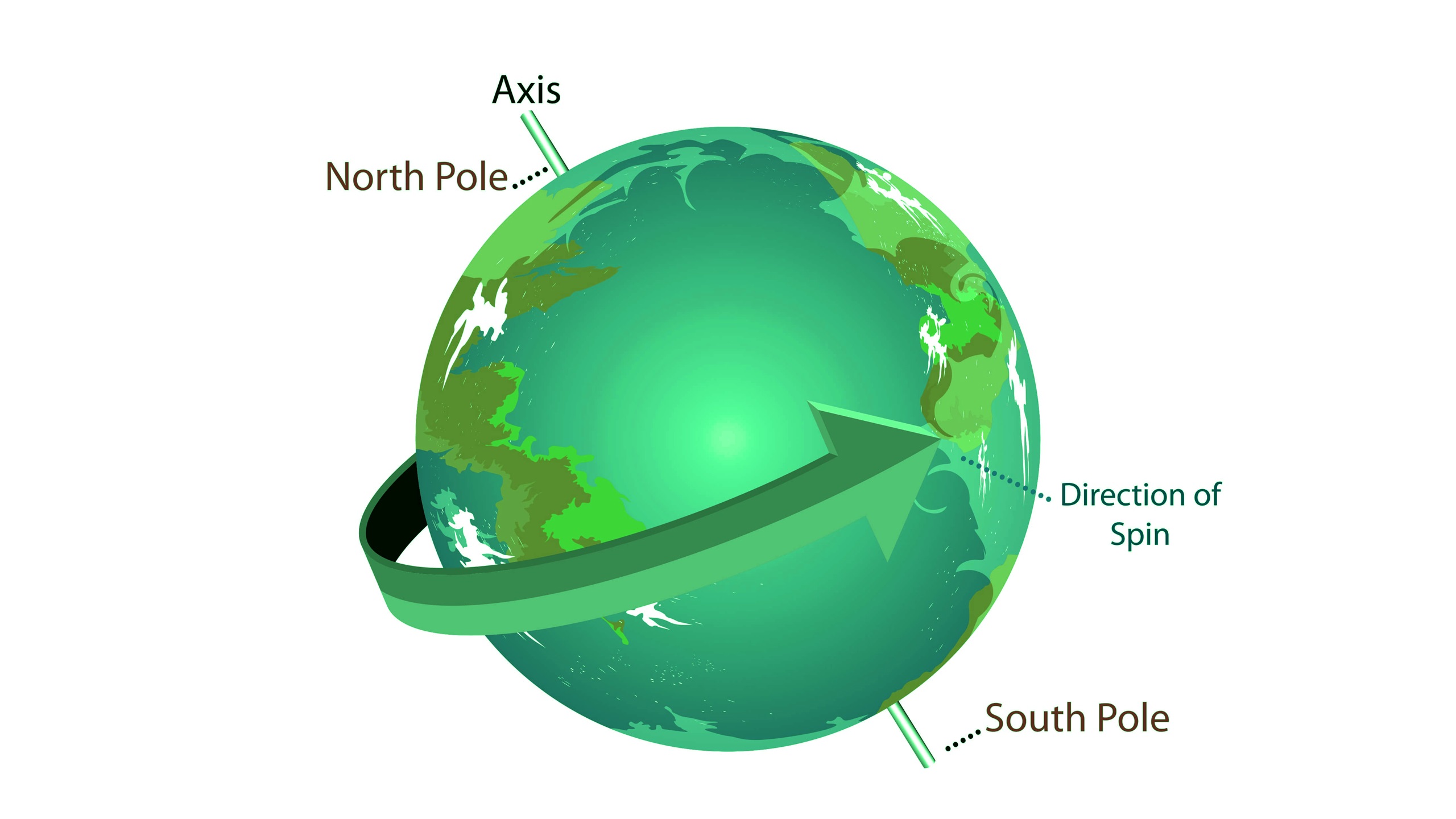
Ever wondered why we experience day and night? It's all thanks to the rotation of Earth. This fascinating phenomenon not only gives us our daily cycle but also influences weather patterns, ocean currents, and even the way we perceive time. Imagine standing on a giant spinning top, rotating at a speed of about 1,000 miles per hour at the equator! The Earth's rotation is a complex dance that has intrigued scientists and curious minds alike for centuries. From the Coriolis effect to the slight wobble known as precession, there's so much more to Earth's spin than meets the eye. Ready to uncover some mind-blowing facts? Let's get spinning!
The Earth's Rotation: A Marvel of Nature
The rotation of Earth is a fascinating phenomenon that affects everything from day and night cycles to weather patterns. Here are some incredible facts about Earth's rotation that will leave you in awe.
-
Earth completes one full rotation on its axis approximately every 24 hours. This is what gives us day and night.
-
The speed of Earth's rotation at the equator is about 1,670 kilometers per hour (1,037 miles per hour). That's faster than a commercial jet!
-
Due to Earth's rotation, the planet bulges slightly at the equator. This makes it an oblate spheroid rather than a perfect sphere.
Historical Discoveries About Earth's Rotation
Understanding Earth's rotation has been a journey through history, with many great minds contributing to our knowledge.
-
Ancient Greek astronomer Eratosthenes was one of the first to estimate Earth's circumference, indirectly hinting at its rotation.
-
In the 16th century, Nicolaus Copernicus proposed the heliocentric model, which placed the Sun at the center of the solar system and suggested that Earth rotates on its axis.
-
Foucault's Pendulum, an experiment conducted by French physicist Léon Foucault in 1851, provided direct evidence of Earth's rotation.
Effects of Earth's Rotation on Daily Life
Earth's rotation impacts our daily lives in more ways than we might realize.
-
The Coriolis effect, caused by Earth's rotation, influences weather patterns and ocean currents. This is why hurricanes spin differently in the Northern and Southern Hemispheres.
-
Time zones are a direct result of Earth's rotation. The planet is divided into 24 time zones, each representing one hour of the 24-hour day.
-
The rotation of Earth affects the length of a day. Due to tidal friction caused by the Moon, Earth's rotation is gradually slowing down, making days longer over millions of years.
Fun and Surprising Facts About Earth's Rotation
Some facts about Earth's rotation are just plain fun and surprising.
-
If Earth stopped rotating suddenly, the atmosphere would continue moving at the planet's original speed, causing catastrophic winds and massive destruction.
-
The rotation of Earth causes the equator to experience a centrifugal force, making it slightly farther from the center of the planet than the poles.
-
The phenomenon of precession, a slow wobble in Earth's rotation axis, takes about 26,000 years to complete a full cycle.
Earth's Rotation and Space Exploration
Space exploration has provided us with new insights into Earth's rotation.
-
Satellites in geostationary orbit match Earth's rotation speed, allowing them to stay in a fixed position relative to the surface.
-
Astronauts on the International Space Station (ISS) experience 16 sunrises and sunsets each day due to the station's rapid orbit around Earth.
-
The rotation of Earth is used to help launch spacecraft. Rockets are often launched eastward to take advantage of the planet's rotational speed.
Earth's Rotation and Its Impact on Nature
Earth's rotation has significant effects on the natural world.
-
The rotation of Earth influences animal behavior. Many species, including birds and sea turtles, use the planet's magnetic field, which is affected by rotation, for navigation.
-
Plants also respond to Earth's rotation. The phenomenon of heliotropism, where plants grow towards the Sun, is influenced by the daily cycle of light and dark.
-
Earth's rotation affects the tides. The gravitational pull of the Moon and Sun, combined with Earth's rotation, causes the regular rise and fall of ocean levels.
The Future of Earth's Rotation
What does the future hold for Earth's rotation? Scientists continue to study and predict changes.
-
Earth's rotation is gradually slowing down due to tidal forces. In about 140 million years, a day will be 25 hours long.
-
The Moon is slowly moving away from Earth at a rate of about 3.8 centimeters per year, which affects the planet's rotation.
-
Scientists use atomic clocks to measure Earth's rotation with incredible precision. These measurements help us understand long-term changes in the planet's rotational speed.
-
The study of Earth's rotation, known as geodesy, continues to evolve with advancements in technology, providing us with deeper insights into our planet's behavior.
The Earth's Spin: A Marvel of Nature
The rotation of Earth is more than just a daily routine. It shapes our days and nights, influences weather patterns, and even affects timekeeping. Without this constant spin, life as we know it would be drastically different. From the Coriolis effect to the equatorial bulge, Earth's rotation impacts everything around us. It's fascinating how this simple motion governs so much of our existence.
Understanding these facts not only deepens our appreciation for our planet but also highlights the intricate balance of natural forces. Next time you watch a sunrise or feel the wind on your face, remember the incredible mechanics at play. The Earth's rotation is a testament to the wonders of nature, reminding us of the delicate dance that keeps our world in harmony.
Was this page helpful?
Our commitment to delivering trustworthy and engaging content is at the heart of what we do. Each fact on our site is contributed by real users like you, bringing a wealth of diverse insights and information. To ensure the highest standards of accuracy and reliability, our dedicated editors meticulously review each submission. This process guarantees that the facts we share are not only fascinating but also credible. Trust in our commitment to quality and authenticity as you explore and learn with us.


